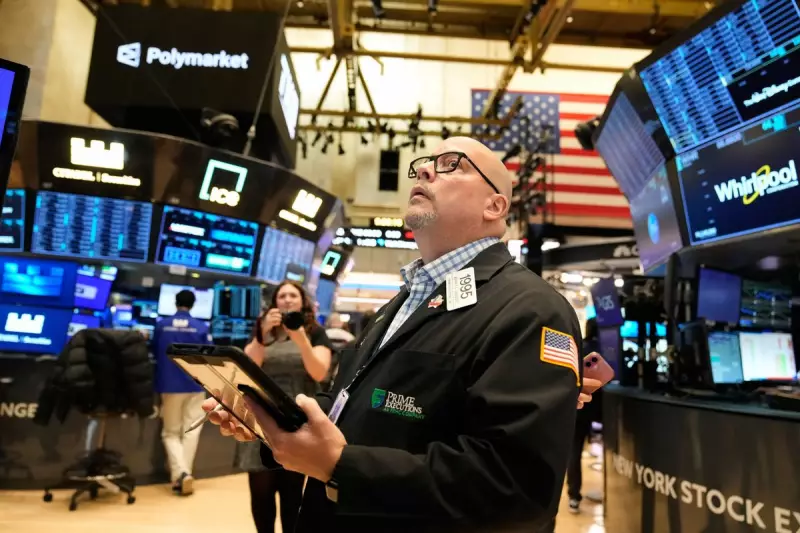
Wall Street suffered one of its most severe trading days since April on Thursday, as a sharp sell-off in artificial intelligence stocks and renewed doubts about interest rate cuts rattled investors.
AI Stocks Lead Market Decline
The technology-heavy Nasdaq composite experienced the heaviest losses, dropping 2.3 percent, while the S&P 500 fell 1.7 percent in its worst performance in a month. The Dow Jones Industrial Average plummeted 797 points, representing a 1.7 percent decline from its previous record.
Chipmaker Nvidia, which has become synonymous with the AI boom, led the market downturn with a 3.6 percent drop. Other companies caught in the artificial intelligence frenzy followed suit, with Super Micro Computer falling 7.4 percent, Palantir Technologies declining 6.5 percent, and Broadcom losing 4.3 percent.
Concerns are mounting that AI stock valuations have become unsustainable following extraordinary gains earlier this year. Before the recent downturn, Palantir had achieved a staggering 174 percent increase since January.
Federal Reserve Uncertainty Adds Pressure
Beyond technology stocks, broader market sentiment suffered as traders reconsidered their expectations for Federal Reserve interest rate cuts. Recent comments from Fed officials have significantly reduced market confidence in another rate reduction this year.
According to CME Group data, traders now see only a 51.9 percent chance of a December rate cut, down from nearly 70 percent just one week ago. Susan Collins, president of the Federal Reserve Bank of Boston, contributed to this shift by suggesting that maintaining current interest rates "for some time" might be appropriate.
The recent US government shutdown complicated the Fed's decision-making process by delaying crucial economic data releases. This information blackout has left policymakers uncertain about whether slowing employment or persistent inflation represents the greater economic threat.
Broader Market Impact and Outlook
The entertainment sector felt additional pressure as The Walt Disney Co. fell 7.7 percent despite reporting better-than-expected quarterly profits, after revenue figures disappointed analysts.
Not all companies suffered losses during Thursday's session. Cisco Systems jumped 4.6 percent after exceeding profit and revenue expectations, while Berkshire Hathaway, Warren Buffett's conglomerate, rose 2.1 percent.
In international markets, European indexes declined while Asian markets showed modest gains. Tokyo's Nikkei 225 rose 0.4 percent despite continued weakness in Japanese tech giant SoftBank Group, which fell another 3.4 percent after revealing it had sold its entire $5.8 billion stake in Nvidia.
The cryptocurrency market mirrored traditional financial markets, with bitcoin falling below $99,000 after approaching $125,000 last month.
Market analysts warn that volatility may continue as economic data delayed by the government shutdown begins to emerge. Doug Beath, global equity strategist at Wells Fargo Investment Institute, cautioned that the "looming data deluge may spur additional volatility in the coming weeks."





